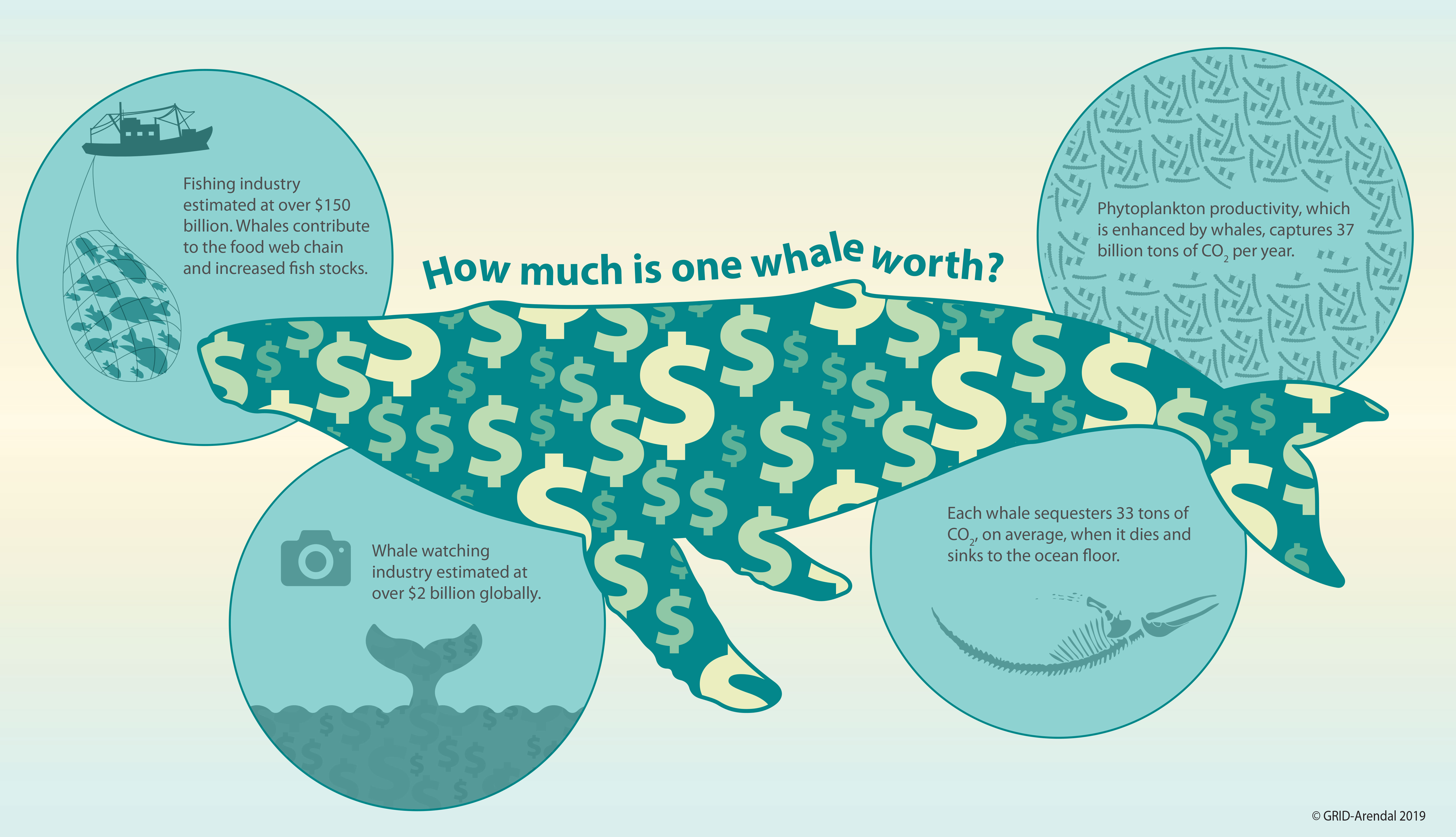This time from the World Economic Forum, November 29, 2019:
Whales are vital to curb climate change - this is the reason why
- Whales store huge amounts of CO2
- They support the growth of phytoplankton, which stores 40% of all carbon produced
- A 1% increase in phytoplankton productivity is equivalent to 2 billion mature trees
They are majestic, massive and mysterious - and they could hold a secret for combating climate change.
Now, researchers have put a price on the value that whales bring to the world.
The International Monetary Fund (IMF) has estimated the value of a single great whale at more than $2 million - which comes to more than $1 trillion for the current stock of great whales.

The IMF based its figures on each whale’s contribution to carbon capture, the fishing industry and the whale-watching sector, which is worth over $2 billion.
If we helped whales return to their pre-whaling numbers of 4- to 5 million (up from 1.3 million today), researchers say they could capture 1.7 billion tonnes of CO2 annually - with the cost of protecting them at just $13 per person a year.
Whales vs treesOver a lifespan of around 60 years, whales - especially great whales, such as right and grey whales - accumulate an average of 33 tonnes of CO2. When they die, they sink to the bottom of the ocean, locking that carbon away for hundreds of years.
By comparison, a tree absorbs up to 48 pounds of CO2 a year.
Part of the carbon capture potential for whales comes down to their role in increasing phytoplankton productivity wherever they go - a phenomenon called the ‘whale pump’.
As they rise up through the ocean to breathe and migrate across the globe, the iron and nitrogen in their waste provides ideal growing conditions for these microscopic creatures.

And while they may be small, phytoplankton play an enormous role in regulating our atmospheric conditions - contributing at least 50% of all oxygen and capturing an estimated 37 billion tonnes (40%) of all CO2 produced.
The IMF calculates that’s the same as the amount captured by 1.7 trillion trees, or four Amazon rainforests’ worth.
A 1% increase in phytoplankton productivity linked to whale activity could mean the capture of hundreds of millions of tons of additional CO2 a year, equivalent to 2 billion mature trees, according to the IMF........MUCH MORE
One of these days I'll retell a saga about plankton.
Today though, it's:2010's "Whale Poo and You: Sperm Whale Feces Remove 200,000 Metric Tonnes of CO2 Annually" which was followed by "Better than Whale Poop?: 'Sea otters worth $700 million in carbon credits'".
Cetacean dung: we track it so you don't have to.